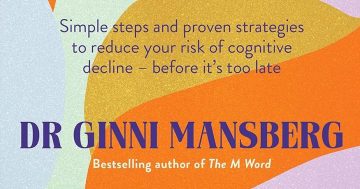People who constantly change their minds can be seen as weak and a frustration to co-workers. Michelle Gibbings* says it’s about knowing the time when a mind change is absolutely the right thing to do.
 Many years ago, I worked with someone who constantly changed their mind.
Many years ago, I worked with someone who constantly changed their mind.
While they were a nice person, they never seemed to know what they wanted. Everything required multiple iterations and lots of dead ends.
It resulted in loads of wasted time and energy. Worst of all, I never felt I was getting anywhere or finishing anything. It wasn’t fun.
A 2010 study found that a lack of progress is one of the biggest de-motivators in the workplace.
In contrast, when employees thought they were making headway or received support that helped them overcome obstacles, their emotions were the most positive.
People want to feel they are making progress on work that matters. When you or your team make progress, it builds commitment and elevates confidence.
We also want to be led by confident leaders, and decision-making plays into that.
Psychologist, Daniel Kahneman found we expect leaders to be decisive and act quickly.
He said: “We deeply want to be led by people who know what they’re doing and who don’t have to think about it too much.”
We equate good leadership with decisiveness, so we punish (figuratively not literally) people whom we perceive as unnecessarily slow decision-makers.
We want leaders who know how to stay the course, not prevaricate or change their minds too often.
It’s a delicate balance, because if you are never willing to change your mind, you’ll likely come up against obstacles that trap you from making progress.
Worse still, people in this mindset are invariably unwilling to admit when they are wrong.
It leads to the question: When is changing your mind a good thing? Here are a few suggestions.
At times, we need to make decisions with imperfect knowledge and data. If over time, you learn more or the data has changed, you may want to rethink your approach.
Or when keeping with a particular course of action isn’t going to get you to where you want to go.
Or if changing your mind helps ensure a better outcome for those impacted by the decision.
Or when the decision to change isn’t just based on a fad, a whim or a fancy with no thought of the consequences, but is deliberately considered.
Or when you know that sticking with your decision is primarily based on vanity, ego and a concern as to what other people will think of you.
Life is an adventure, and if we never change our minds and open ourselves to new experiences, there is so much joy we will miss.
As we grow and evolve, we learn more about our thinking styles. Accepting the need to think differently and take on new perspectives aids that evolution.
It’s not possible to write a prescription as to when you should or shouldn’t change your mind.
It’s about you challenging yourself and being conscious of the impact that the change has on you and those around you.
So, on what perspectives, topics or behaviour do you need to change your mind? I am sure you have ideas.
Recognising that you want to change your mind is the first step. The second step is to do that, which is not easy.
There are a number of factors that will help.
Be courageous:
Recognise the courage involved in changing your mind. Some people may see your change of mind as a weakness. It’s not. It takes strength of character to change course.
Know your why:
It helps if you understand why you want to change and what led to the original decision.
Search for the underlying assumptions and belief structures that underpinned your prior decision-making, then determine how those structures might need to change.
Be ready for resistance:
When you change, other people around you may be uncomfortable. This is particularly the case if your change challenges the status quo.
Source your anchor:
Identify what helps to anchor the change you are making and where you are moving from and to. Anchoring can help strengthen your resolve.
Broaden your network:
Surround yourself with people who will challenge your worldview and open you to different ideas.
The broader your network, the more comprehensive will be your source of ideas and inspiration.
Avoid the curse of expertise:
Accept that one person can’t hold the licence on being right and that no one has all the answers.
Expertise is valued and valuable, but not when it means you stop listening to other ideas.
Slow down:
When our brain is on automatic pilot, it decides based on instinct and learned patterns.
So, if you want to choose differently, you need to be more deliberative and reflective.
Find your sounding board:
For me, changing my mind is something that requires lots of talking and having a good sounding board. Who is your sounding board?
In closing, reflect on the beautiful words of Pico Iyer in his book, The Art of Stillness.
“I sometimes think so much of our life takes place inside our heads — in memory or imagination or interpretation or speculation — that if I really want to change my life, I might best begin by changing my mind.”
*Michelle Gibbings is a Melbourne-based change leadership and career expert and founder of Change Meridian. She can be contacted at [email protected].
This article first appeared atwww.changemeridian.com.au.











